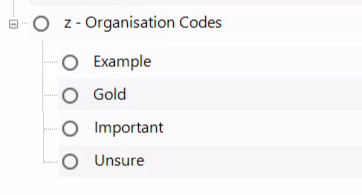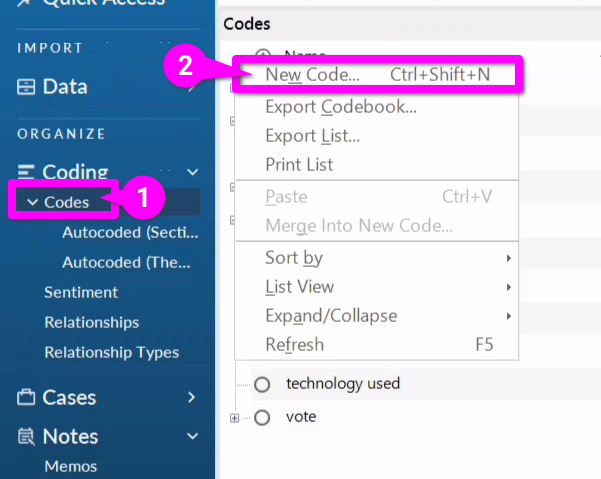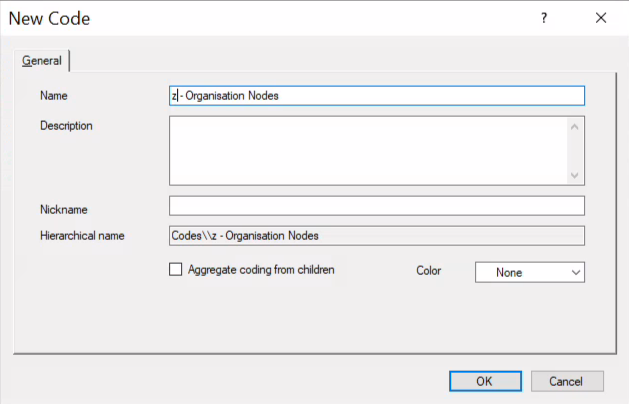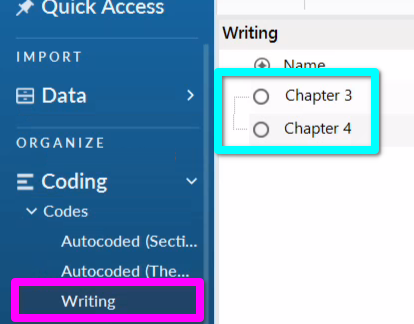Adding Organisation Codes
What are ‘organisation’ codes?
Organisation codes are various different codes that are not part of the main ‘thematic’ coding, but that researchers create to help with organising their coding.
A few examples:
- Example - Use for coding sections that are serve as illustrative example of another code.
- Gold - Use for coding sections that have high probability of later being used as a quote. (Though ensure to avoid cherry-picking!)
- Important - Use for coding sections that are important for the analysis. (This can be distinct in many cases from ‘Gold’.)
- Unsure - Use for coding sections that are coded to another code, but you are unsure whether either it is right code for the section or this coded section is making you question the overall code.

You do not need all of these organisation codes! The list here is merely showing examples of type of codes you may want to consider.
Which and how many to have will change based on personal preferences and analysis aims. When working as part of a large team, ‘example’ can be useful for researchers to identify coded sections they think illustrate specific codes they are developing. This can then help inform discussion to agree a share coding schema for the project.
You can also use whatever names are meaningful to you. I am a fan of ‘gold’ - and like to have a ‘gold pan’ grouping different ‘gold’ nodes. However, as we will see a variant name for this type of code used by others is ‘quotable quote’.
Creating Organisation Codes
- Go to the main ‘Codes’ folder.
- Right-click on any white space and select ‘New Code…’

- Provide it with a suitable name, such as ‘Organisation Codes’
- I have added “z - …” at the start so it is placed at the end when the codes are alphabetically sorted (which they are by default in most places NVivo lists your codes).

- Drag and drop the existing ‘quotable quote’ code to become a child code of ‘z - Organisation Codes’.
- (Optional) rename it to ‘Gold’.
- Create another two child codes ‘Unsure’ and ‘Example’.

Other Types of Organisation Codes
Another way to use codes for organising is having codes to store excerpts you intend to use - or have already used - in specific articles or thesis chapters. These can be combined with queries to facilitate finding relevant excerpts when writing. A Matrix Coding Query - which we will cover next - can be used to quickly show excerpts coded as each of your main codes and your writing organisation codes.

Due to the much more niche use-case for these codes, they are definitely ones to chuck in their own sub-folder to avoid cluttering the top-level Codes folder.

